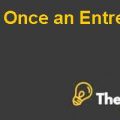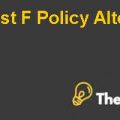Problem Statement
The CEO of United Parcel Services (UPS) Michael Eskew wants to develop a strategic process through which the company would remain competitive in the packaging supply and logistic industry. An external strategic planning group has asked to prepare a strategic process which ensures a continuous transformation of the company as it has been performing since its existence over the past several years.
The company is performing this task along with an external organization by evaluating vital processes of UPS. In this evaluation, the company does its strategic development with the help of scenario forecasting procedures. However, in the scenario planning the company identifies critical elements that includes the upgrading of company’s licenses, strategic organization of individual business entities along with their decision-making criteria and applications.
Introduction
The corporate has earned $ 37 million till 2006 from its existences and became one of the ten largest airlines. It is the world’s major package-delivery company. Due to UPS’s continuous improvement, it is serving as a leader in transportation and logistics industry in more than 190 countries. The company possesses 3,400 retail locations with 383.5 thousand employees that makes the process of package transportation very easy for the customer. The company is based on the principle of centralization with a traditional hierarchal structure followed by the higher management of the company. Priorities, investment decisions, and innovation are being performed by the senior management with involving employees from different departments.
The company makes strategic plans on two basic levels, one on the regional and the other on the corporate level. However, provincial business units are not allowed to make decisions on their own. Currently, the company is facing a variety of difficulties that the company will handle in its coming future. UPS is planning to develop a new technology that serves their information system for its competitiveness in the market. However the company is putting its efforts to tickle its strategic problem that repeatedly asks to grow UPS’s air services business.
Strengths and weaknesses of scenario planning
Scenario planning makes the company able to critically analyze the unforeseen events that are going to accrue in the future. However, strategic planning is a long-term forecast for the combined operations performed by the company and is not only for a specific event or a situation.
Strengths
It identifies key issues that possess a certain degree of the possibility of events that will be occurring in the future.
In scenario planning, we analyze the reasons due to which the company will be facing unforeseen events. These driving forces will be related to the economic, political and social environment.
The most important strength of scenario planning is its in-depth documentation for each event and its sorting of uncertainties on the basis of predetermined and critical difficulties.
Weaknesses
The process is too much longer and requires a lot of time and market research to forecast potential problems regarding a particular context. It also possesses a risk of market dynamics that eventually changes all other variables that exists in the previous analysis.
This process is an expensive plan for the company as when its officials get engaged in the making of scenario planning then it will hurt their performance in their concerned areas. However, company officials can help the “ad hoc group” who are conducting this planning in their company as an external resource service provider.
Strategic Planning at United Parcel Services Case Solution
Evaluation of UPS’s scenario planning
Previous scenario planning was taking international market as their playing field. From a global perspective, UPS’s was performing scenario planning in order to cater foreign competitors and to make their delivery system more effective and efficient. However, currently the company is focused on the building of scenario setup for its regional business units. Scenario planning secession held in 2004 highly emphasizes on the importance of mail security issues and terrorist activities. However, the planning done in 1997 was preparing to defend themselves from government institutions.
The administration was having an impression that the company was moving in the right direction by conducting the situation analysis on competitive forces and the global marketing scheme. An addition made by the CEO, that with the help of the scenario building the company has not been forecasting the future, but it has developed various alternatives to handle different kinds of potential threats and opportunities.................
This is just a sample partial case solution. Please place the order on the website to order your own originally done case solution.
In March 2005, CEO Michael Eskew asked the Corporate Strategy group to recommend changes in the strategic process to make sure that enables United Parcel Service (UPS), to continue to transform itself over the next few years. Describes the evolution of the strategic unit, with special attention to the use by the scenario planning techniques, as well as other important elements of the process: the development of the company's charter, strategic planning, strategic decision making and implementation. We also discuss the role of the various participants in the process, paying particular attention to the CEO and employees of corporate strategies. "Hide
by David Garvin, Lynne C. Levesque Source: Harvard Business School 25 pages. Publication Date: November 16, 2005. Prod. #: 306002-PDF-ENG













